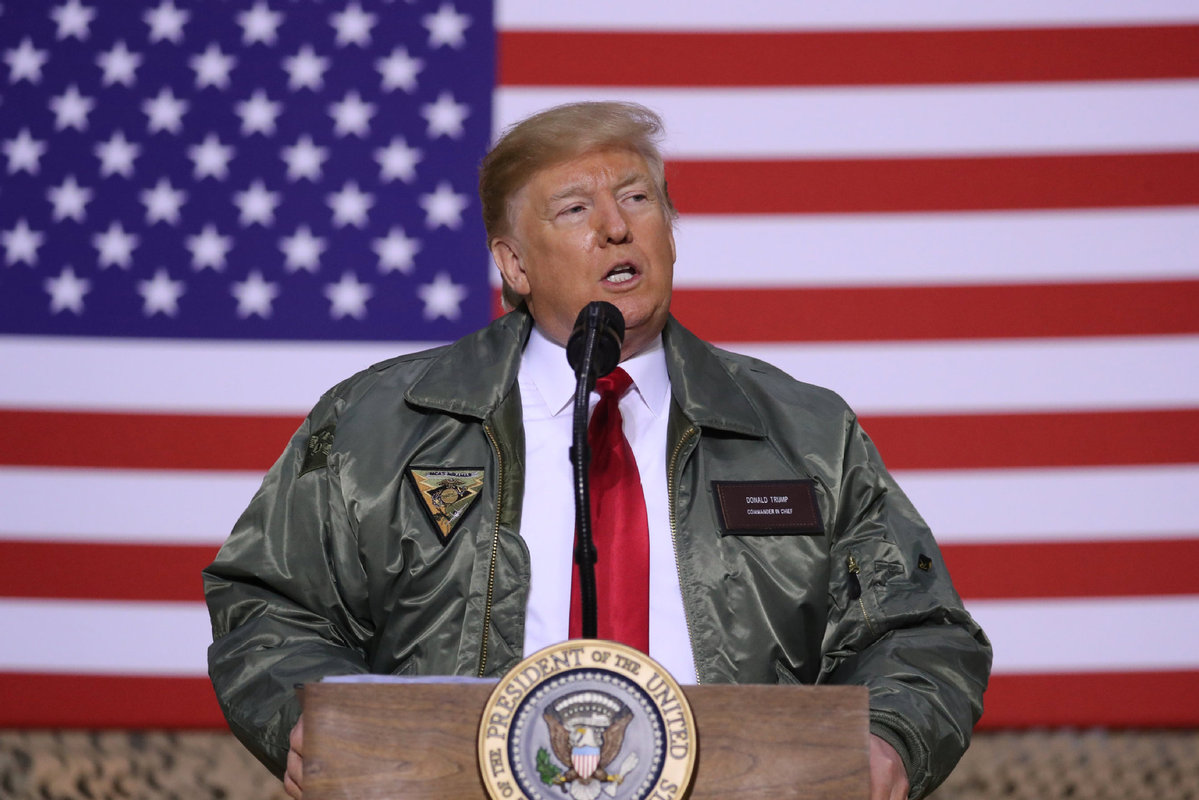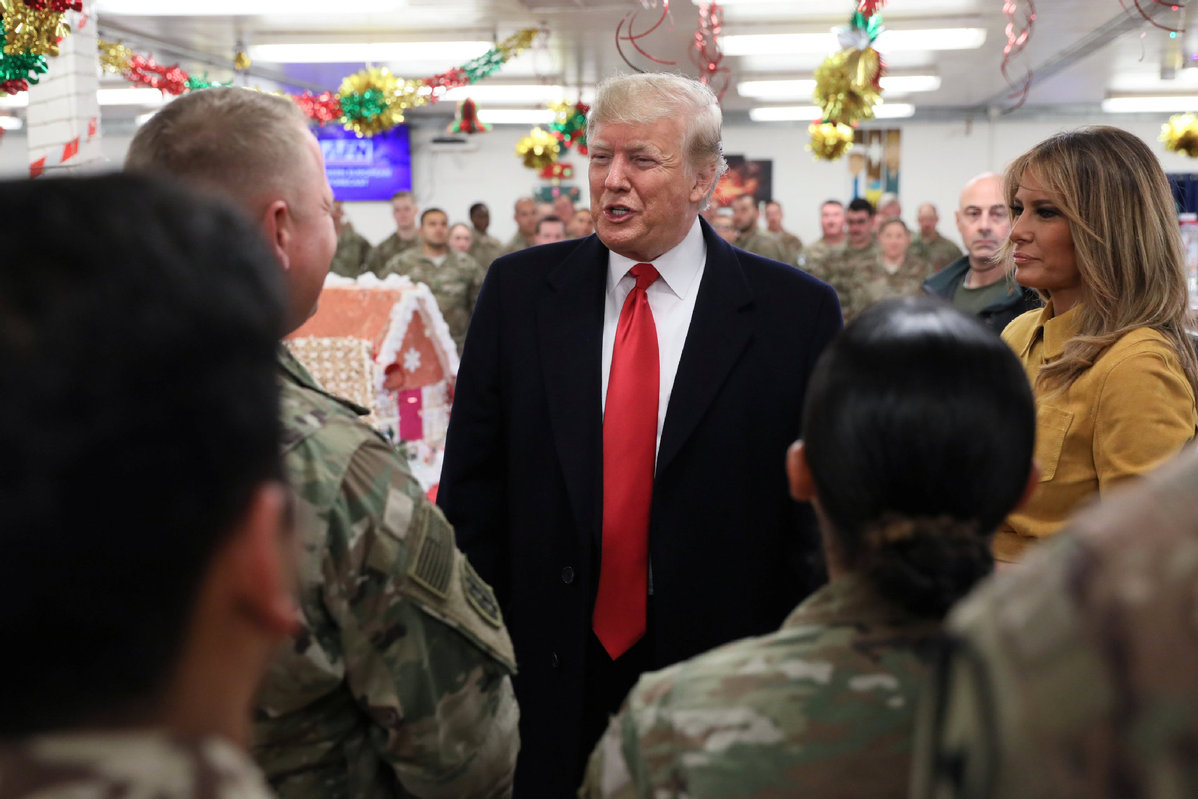US has blotted copybook acting as world's policeman: China Daily editorial


Whether the world needs the United States to play the role of global "policeman" has been increasingly questioned in recent years, as its interventions in the affairs of other countries have consistently done more harm than good.
With US President Donald Trump declaring this week that the world's sole superpower is discarding this self-assumed role, much of the world will feel relieved — at least for a while.
That Trump made public his decision during a surprise visit to Iraq on Thursday is ironically apt as it is a country that still bears the scars from the US' heavy-handed policing.
In fact, the US interference in Middle East countries such as Iraq, Libya and Syria has been a major factor behind the rise of terrorist groups, especially Islamic State and al-Qaida, in the region. As such, many people will consider the world to be a safer place without the US patrolling the beat.
The US' policing of the world has never been driven by altruism. It has always acted to protect its own interests and project its power across the world. So even if it turns off its sirens, the US will resort to other means to pursue its own interests and agendas.
But at least the world now has a better chance to rally more agreement on how best to maintain peace and stability.

To retain its global supremacy, the US has established a network of alliances made up of countries to which it offers a security umbrella in exchange for support of its policing. With it no longer willing to be the "policeman", that umbrella will now come at a price. Those countries being asked to pay should consider the true costs of doing so.
With a new year just around the corner, they should embrace equality, mutual respect, noninterference and win-win cooperation for shared security.
The US, on its part, instead of taking every opportunity to flex its muscles and continually trying to impose its will by force, should accept it is a member of a global community and shoulder its responsibilities by contributing in a constructive way and working with others to ensure it is a safe and secure community for all.
So the question is not whether or not the US should be the global "policeman"; clearly it shouldn't, since it is only seeking to protect and serve itself.
Instead, the question we should be trying to answer is how can we improve the global governance system to uphold the purposes and principles of the United Nations, which was established to harmonize the actions of nations for the attainment of peace and stability for the common good.

































